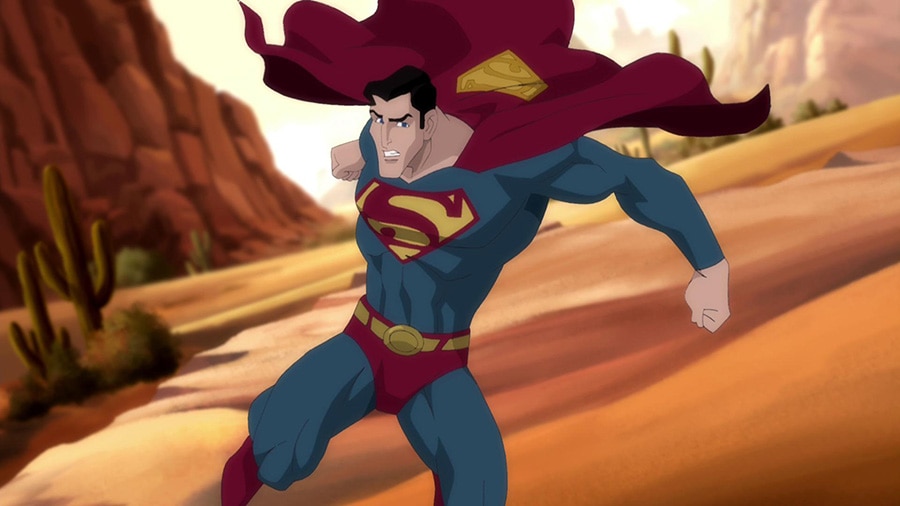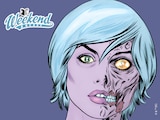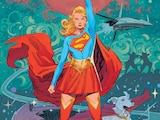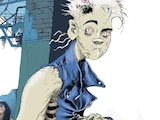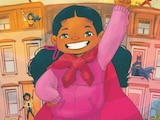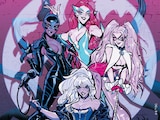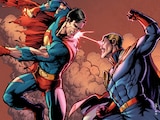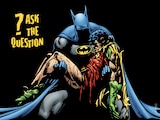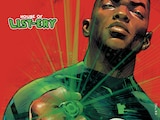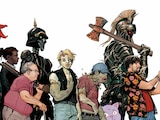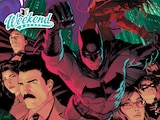With his rugged warmth, unforgettable charm and All-American good looks, Matt Bomer was born to play a superhero. And he has. Three different times, in fact. Though if that had somehow escaped your notice, no one could blame you. Of the three roles, only one has actually involved his face and only part-time at that.
After causing a stir in shows like White Collar and Chuck and movies like Magic Mike, Bomer voiced the Man of Steel in the 2013 animated movie, Superman: Unbound, a well-regarded DC Universe movie that at the time was only the fourth DC Universe to be centered around the iconic character (there has since been four more). Bomer would return to the world of DC six years later in the live action Doom Patrol, the eccentric, imaginative take on the notoriously strange superteam that now airs on HBO Max. Bomer is one of two actors who embody Negative Man in the series, providing the character’s voice and face in any flashback, pre-bandage scenes. Doom Patrol is currently shooting its much anticipated third season, but Bomer nevertheless found time to take on a third DC role during the series’ downtime—that of Barry Allen in Justice Society: World War II, the 1940s-set animated movie that’s out on Blu-ray today.
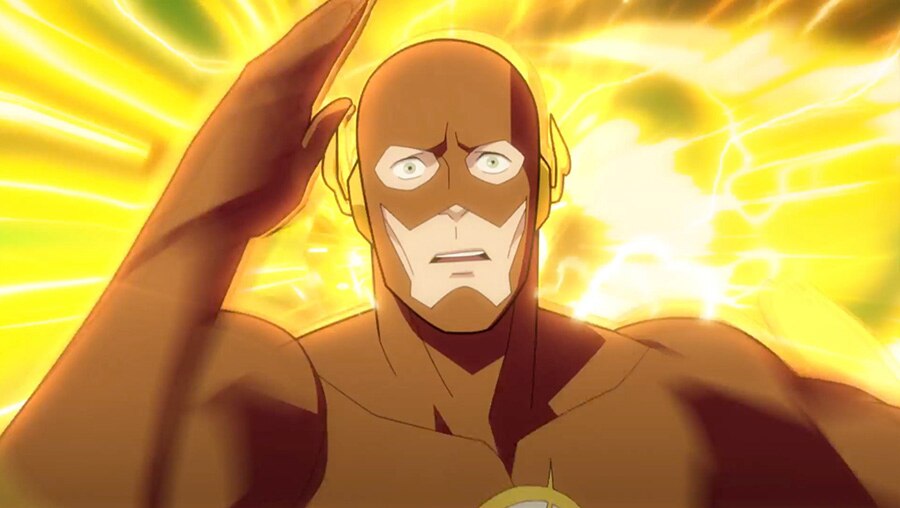
Justice Society: World War II marks Bomer’s second role in a DC Universe animated movie, but as he’s quick to point out, it’s voicing a much different character than his first go-round. Aside from the very obvious differences between Superman and the Flash, Justice Society finds Bomer embodying a Barry Allen who’s travelled back in time to the battlefields of the second World War. With the survival of his very existence and that of everyone he loves at stake, the Flash must help the heroes of that era defeat a surprising Nazi threat in a story that has powerful resonance today. Of course, the same could be said about Doom Patrol’s kind, misunderstood Larry Trainor and Superman: Unbound’s haunted-by-the-past’s Kal-El, making Bomer one of the most socially relevant DC actors working today.
With his new film now in stores, we thought it was high time we sat down with Bomer for a chat about his various superhero roles, and how Justice Society: World War II fits beside his other two DC projects.
Between Superman: Unbound, Doom Patrol and now Justice Society: World War II, you’re really starting to become a DC comics regular. Were you always such a DC fan?
I was! We were definitely more of a DC household growing up. Some of my earliest childhood memories are of Superman, the Flash, Justice League—those characters. I think your first interaction and understanding of superheroes is obviously very iconic in your psyche and it was definitely DC for me. I did love X-Men as well, but I came to them a little bit later.
Did you have a favorite DC hero?
I think it was probably Superman. I was fortunate enough that the Christopher Reeve movies were happening when I was very young. I think the first one came out before I was born, but I was watching those movies very early on. Richard Donner did such a great job. The movies were just iconic to me in so many ways. So, I would say it had to start with Superman and then it branched out from there.
It’s funny, having three sons, I think who you respond to as a superhero says so much about who you are. Our oldest son is a huge Flash fan and always has been. He was the Flash for multiple Halloweens and now he’s a guy who loves racing, running and sports. There’s such a great swatch of heroes that anybody can find themselves in one of them.
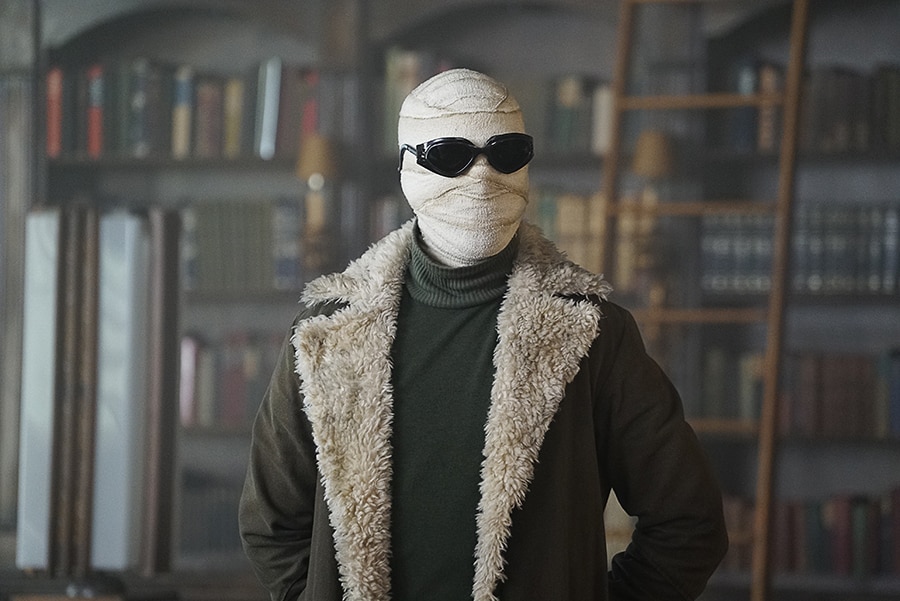
All three of your DC roles have been collaborative performances. Do you like shaping the character along with others, as opposed to taking the whole thing on yourself? Is there any difference in your approach?
I think it’s great to be able to do all of the above. I think it’s great to be able to do it all—though it’s never all on your own, it’s always a team effort—but it’s great to have control over the physical and the voice, it’s great to just do the voice and it’s great to check your ego and really get to collaborate on something like we do on Doom Patrol. I really do enjoy it all. When you’re doing these animated films, you’re so grateful to have folks like Wes Gleason, who was our voice director, and Butch Lukic, who’s our supervising producer, who are so good at helping you find the version of a character that serves this particular story. Finding all the unique rhythms, cadences, registers and nuances of the character.
Because you’re not in the room with any other actors, you’re sort of just operating in a void with your imagination and I think there’s something really freeing and great about that. I learned early on, particularly during Superman: Unbound, I get very physically into it when I’m in the booth. I had to give up caring about what people thought of me and if I was going to make a fool out of myself or not and just go for it. I think there’s a real freedom in that once you let yourself do it.
In Justice Society: World War II, you play the Flash, who’s a new character for you. What’s something you brought to the character that wasn’t there when you previously voiced Superman?
Oh, well they’re completely different characters. Their life experiences, their circumstances, their powers and their relationship to their powers, their sense of purpose and why they do what they do. Ultimately, they’re trying to achieve the same thing, but they’re very different people.
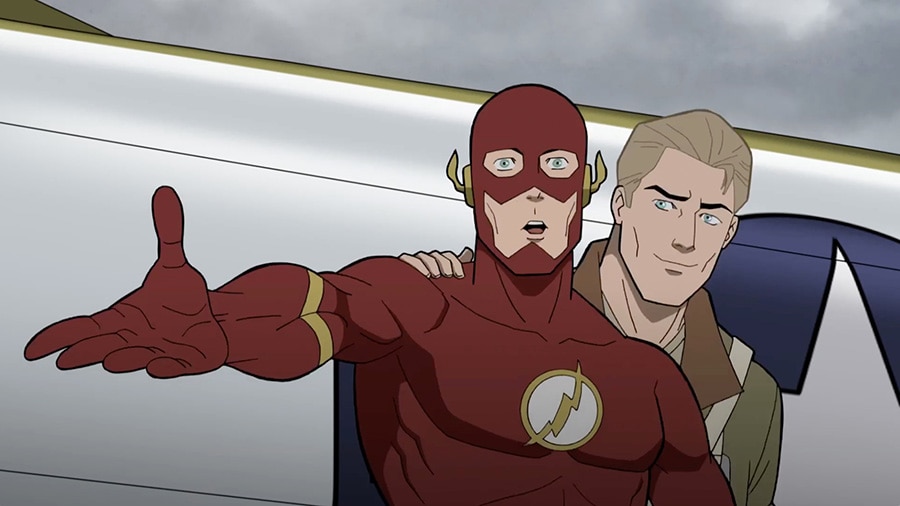
One of the things I loved in the script about this particular version of Barry was the arc that he goes on over the course of the film. That was really interesting to me and actually became more relevant to me over the course of the pandemic. But also, I love his sense of humor and this sort of modern wit and sensibility that he brings when he’s thrust into this extraordinary circumstance where he’s dealing with folks who are really coming at everything from a very 1940’s point of view.
You’re alluding to the fact that Barry Allen is time-displaced in the movie. How does having a future Flash on the team help the Justice Society in their battle against the Nazis?
I think because the stakes are extremely high, there’s no time for any kind of existential crisis. Even though he’s this interloper, they both have to kind of thin slice each other really quickly and ascertain “What are the motives?”, “What’s going on?”, “Who is this person?”, and then just jump into it together.
One of the things I loved about Barry’s relationship with Jay Garrick, who’s played so well by Armen Taylor, is they have these discoveries about each other, their powers and how those powers are now affected, and they have to ultimately learn how to collaborate really quickly in order to help the team in ways that they might have been able to do individually at one time. I do also think that Barry’s able to bring his particular skillset and his modern sensibility in a way that helps the team, but I think he ultimately learns as much or more from them as they learn from him.
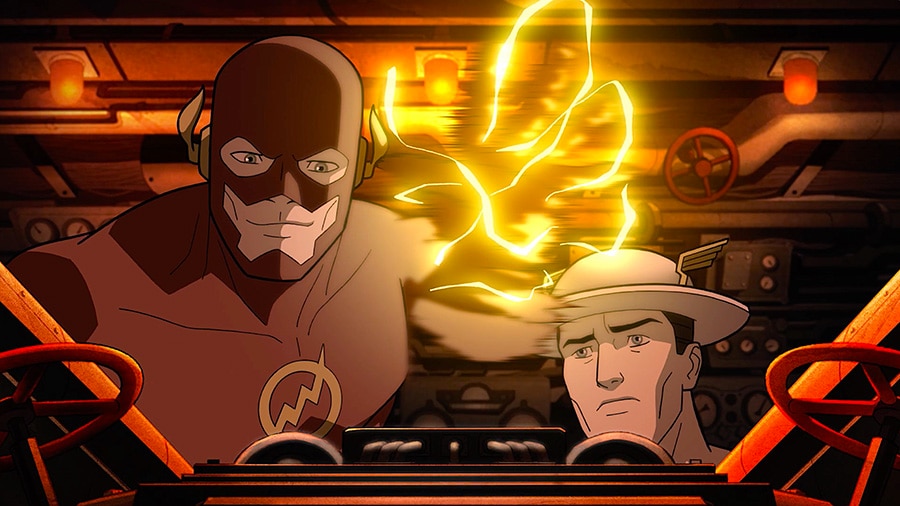
Is there something you think the modern-day Justice League can learn from this earlier team of heroes?
I think Barry learns two really important things from the Justice Society in this film. One, he’s so scattered when we first meet him. He’s trying to be in a hundred different places at once and be different things to different people. It’s really through his interaction with the Justice Society, and the sort of purity they bring to their relationships as well as their sense of duty, that he’s not only able to go back and have better, more present relationships with the people in his life, he also understands that while we all have these amazing gifts, it works so much better when we combine them than they will ever work individually.
Of the three DC characters you’ve played, which is the one you’d say you have most in common with?
I think there are different things I have in common with each one. There’s no one that’s the most me. There are aspects of Barry’s sense of humor that I really enjoy. There are aspects of Superman’s nobility that I wish I had, that I try to remind myself to strive for. And I think there are struggles that Larry has gone though, that on a different level I have experienced directly. Getting to transcend what he perceives as limitations is something that I’ve experienced in my own life. For every role, there are different parts of yourself that you’re using, but there’s no one of them that I think is the most me.
Justice Society: World War II is now available for purchase or rental digitally and on disc. Doom Patrol and Superman: Unbound are both streaming on HBO Max.

